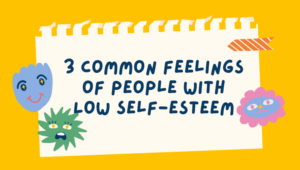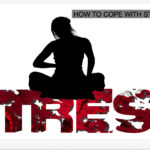Cognitive distortions are a type of thinking that can lead to negative emotions and behaviors. They are often a result of our own biases and beliefs, and can be a part of many different mental disorders.
CBT, or Cognitive-Behavioral Therapy, is a type of treatment that can help to address cognitive distortions and other negative thinking patterns.

What Are Cognitive Distortions In Mental Health?
We all have different ways of looking at the world and interpreting what we see. Our individual perspectives are shaped by our past experiences, beliefs, and values.
Sometimes, however, our ways of thinking can become distorted, which can lead to negative thoughts and emotions such as anxiety, depression, and low self-esteem. These distorted thought patterns are known as cognitive distortions.
Cognitive distortions are biased ways of thinking that can lead to inaccurate conclusions. They can cause us to see things in a more negative light than they actually are, and can make us feel worse about ourselves and our situation.
11 Most Common Cognitive Distortions
If you’re not familiar with cognitive distortions, don’t worry – you’re about to learn all about them!
Here are 11 of the most common cognitive distortions.
1. All-or-Nothing Thinking
This is when you see things in black-and-white terms, with no middle ground. For example, you might tell yourself that you’re a complete failure if you don’t get an A on your test. You are either a success or a failure, and there’s no in-between.
This type of thinking can be very difficult to change, because it is entrenched in our minds. It can be hard to see things in a different way, because it feels like you’re stuck in a cycle of negative thinking.
2. Overgeneralization
This is when you make a broad conclusion based on a single event. For example, you might tell yourself that you’re always going to be alone because you were rejected by your crush.
It’s a false assumption because rejection is not always indicative of a person’s future. Rejection can happen for a variety of reasons, and it doesn’t mean that a person will never be successful.
3. Mental Filter
This is when you focus on the negative and filter out the positive. For example, “I had a great day at work, but I made one small mistake.”
In this cognitive distortion, you focus on the negative aspects of the day and disregard the good, describing yourself as worthless because of one mistake at work.
4. Disqualifying the Positive
This is when you dismiss the positive and only focus on the negative.
For example, “I got an A on my test, but it was an easy test.” In this cognitive distortion, you might tell yourself that your good grades don’t matter because you’re not smart but the test is just easy.
This can make you feel down about yourself, and you might even stop trying to do well on future tests.
5. Jumping to Conclusions – Mind Reading
Mind reading is a form of jumping to conclusions in which we assume we know what others are thinking or feeling, without actually knowing for sure. We may believe that we can read other people’s thoughts, or that they can read ours. We may also believe that we can tell what someone is feeling just by looking at them.
For example, you might tell yourself, “She must think I’m an idiot because she’s looking at me funny when I give a presentation at team meetings.”
6. Jumping to Conclusions – Fortune Telling
Fortune telling is a cognitive distortion that can have a negative impact on our lives by leading us to believe we have control over events we don’t. It’s a form of magical thinking that can cause problems like making bad decisions, missing out on opportunities, and general anxiety. It can also make us fixate on the future and worry about things that may never happen.
For example, you might tell yourself, “I’m going to fail this test. I’ll never get into college.” But if you don’t study for the test, you’ll probably fail. And even if you do study, there’s no guarantee you’ll get into college.
So worrying about it ahead of time is just going to cause unnecessary stress.
7. Magnification (Catastrophizing) or Minimization
This is when you make a small problem seem much bigger and more dangerous than it really is.
For example, let’s say you’re giving a presentation at work and you start to feel really nervous. Your heart starts to race and you start to sweat. You might start to think, “Everyone is going to think I’m an idiot. I’m going to make a fool of myself. I’m going to get fired.” These are all examples of catastrophizing.
This fear feels very real and very big. But in reality, the chances of this happening are quite small. Most likely, even if you do make a mistake, no one will even notice.
8. Emotional Reasoning
Emotional reasoning is a cognitive distortion that occurs when we allow our emotions to dictate our thoughts and actions. These beliefs are based on our emotions, not on reality. And when we act on these beliefs, we can end up making our lives worse.
For example, you might tell yourself that “I’m not good enough because I failed a test.” Or, “I’m not worthy of love because my partner left me.”
9. Should Statements
We say things to ourselves like “I should have done that,” or “I shouldn’t have said that,” or “I should be thinner/smarter/better.” These are what we call “should statements.”
Should statements are a form of cognitive distortion, which means they’re a way our brain tricks us into thinking something that isn’t true. For example, when we tell ourselves “I should have done that,” we’re usually beating ourselves up for something we didn’t do, or we’re comparing ourselves to others. Neither of these things is helpful or accurate.
Should statements are harmful because they keep us from living in the present moment, and they make us feel bad about ourselves. If you find yourself using should statements, try to reframe them in a more positive or realistic way.
For example, instead of saying “I should have gone to the gym,” you could say “I’m glad I went for a walk.” Or, instead of “I shouldn’t have eaten that,” you could say “I’m glad I tried something new.”
Should statements can also prevent us from taking actions that we actually want to take.
For example, let’s say you really want to go on a date with someone but your should statement is “I should wait until they ask me out.”
In this case, your should statement is actually preventing you from taking the action that you want to take.
10. Labeling and Mislabeling
We all have a tendency to label things. We see the world in terms of black and white, good and bad, right and wrong. This tendency is called cognitive distortion.
When we label something, we assign a fixed meaning to it. This can be helpful if the label is accurate and helpful. However, often times we label things in a way that is not accurate and can be harmful.
For example, we might label someone as “lazy” if they don’t do what we want them to do. Or, we might label ourselves as “stupid” if we make a mistake. These labels can be very harmful because they can become self-fulfilling prophecies. If we believe that we are lazy or stupid, then we are likely to act in ways that confirm these beliefs.
Mislabeling is similar to labeling, but it’s when we assign an inaccurate meaning to something.
For example, we might mislabel a situation as “hopeless” when it’s actually just difficult. Or, we might mislabel our emotions as “bad” when they are just uncomfortable. Mislabeling can be harmful because it can lead us to believe things that aren’t true and it can prevent us from seeing the situation or ourselves accurately.
11. Personalization
Personalization is the tendency to see ourselves as the cause of things that are actually beyond our control. For example, let’s say you get laid off from your job. A person with this cognitive distortion might believe that it’s their fault they were laid off, even though there were likely many other factors involved.
Or if our partner is unhappy, we might believe that it’s our fault and that we need to do something to make them happy.
Conclusion
In this blog post, you learn about the 11 most common cognitive distortions that are ruining your life.
I hope that by understanding these cognitive distortions, you’ll be able to start working on fixing them.






